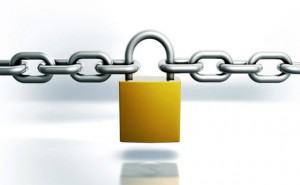
The following is a list of “Do’s & Don’ts” to help you protect your privacy.
In case you didn’t know it, there’s an ongoing assault on your personal and financial privacy. Countless private organizations as well as some specific ‘alphabet agencies’ of your government are collecting and maintaining detailed records on us.
While clearly your privacy is under siege, there are things you can do about it…
Keep your mouth shut
“Loose lips sink ships”. There always seems to be someone in a crowd, group, or setting who has the loud and boisterous voice – perhaps a braggart or self-important individual. A first rule of privacy is to keep your mouth shut, especially while in public or any environment where others will hear what you say.
Don’t flaunt what you have
Especially if you’re fortunate enough to have ‘plenty’, be aware that many others do not. While some people have no issue with it, there are plenty who will begrudge you, or even target you. Be modest, not flashy. Don’t draw attention to yourself.
Shred documents
It is apparently legal for others to go through your curbside trash. Never throw away important documents which will reveal your personal or sensitive information. Use a cross-cut shredder.
Protect or Encrypt computer files
Most people keep some (or many) important documents and files on their computer. Snoops and hackers may be able to get in and see or download these documents. To help protect against this, you could either keep one computer separately for such things while NOT connecting it to the internet, and/or use quality internet virus/firewall software. Purchasing a VPN (virtual private network) will also help prevent ‘man in the middle’ attacks while on the internet (it’s an encrypted ‘tunnel’). Additionally you might (should) encrypt your sensitive files with one of the many encryption programs that are available (some free, some are pay).
Privatize your email
It should be well known by everyone these days that unless you’re using encrypted email, it can be easily intercepted and read. So either assume that everything you write in an email can be read by ‘anyone’, or consider using an encrypted email service (e.g. hushmail.com).
Anonymize your internet searching and browsing
All of the most popular widely used internet search engines will track every search that you ever make. Additionally, it is well known that the NSA program “PRISM” (and likely others yet unknown) similarly can keep track of what you’re looking for on the internet with apparent cooperation from the internet ‘giants’. That said, you should consider using anonymous search engines which do not log or track your IP address when you search online (e.g. DuckDuckgo.com or ixquick.com and others…).
Use cash instead of debit or credit cards
Cash is private. Although there is a definite move towards a cashless society (a watched and controlled society), while you can, you should use cash if you’re concerned at all about your online ‘dossier’. When you purchase with a debit or credit card, there’s a record of what you’ve bought (forever?), where you’ve bought it, and when you bought it.
Don’t sign up for promotional enticements or discount offers
Have you ever considered why a store might offer you a 10% discount or a $30 discount (etc..) to ‘sign up’ for their store card? Your information is worth money to them. You will be targeted with mailings (and spam mail & phone calls) based on what you purchase, your personal demographic, and other such things. Your name, address, phone number, and email address will go out far-and-wide.
Avoid Facebook, Twitter, and similar social websites
If you’re concerned abut privacy, then it should be a no-brainer that social websites like Facebook (for example) are anything but private. Additionally, it is known that Facebook is apparently a cooperating partner with the ‘PRISM’ program of the NSA. Everything that you say on Facebook, every picture you upload to Facebook, is a permanent record of your life for others to peer into…
Be aware that your smart phone is leaving ‘breadcrumbs’
Smart phones are specifically tied to ‘you’. Unless you’re buying a ‘burner phone’, when you sign up for a new cell phone your social security number (as well as your personally identifiable information) is linked to that specific phone. Not only are your calls potentially monitored, but it has been widely reported that many ‘apps’ have total access to the phone’s microphone, camera, GPS position, messaging, etc.. Your phone can track your movements (to other entities) and it could be ‘looking’ at you right now and listening to what you’re saying. Creepy…
sssource:modernsurvivalblog.com
Leave a Reply